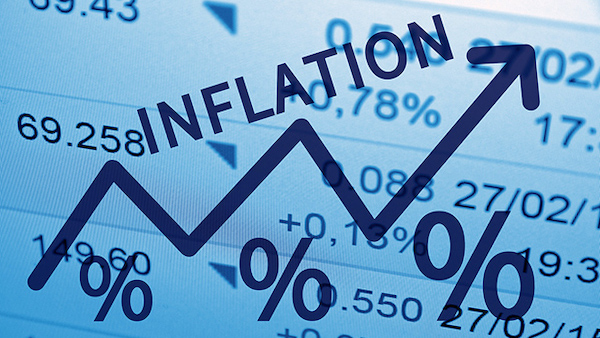Business
Nigeria’s inflation hits 14.89%, driven by soaring food prices

Nigeria’s inflation rose for the 15th month in a row in November, touching a more than two-year high amid spiraling food prices fueled by land border closure and fall in the exchange rate of the naira, data from the National Bureau of Statistics (NBS) showed on Tuesday.
A separate index, measuring food inflation, rose sharply by 18.30% relative to 17.38 per cent the month before.
Inflation, which measures the cost of living, climbed to 14.89 per cent, compared with the 14.21% reported for October.
Nigerian inflation rose for the 15th month in a row in November, touching a more than two-year high amid spiralling food prices fuelled by land border closure and fall in the exchange rate of the naira, data from the National Bureau of Statistics (NBS) showed on Tuesday.
Inflation, which measures the cost of living, climbed to 14.89%, compared with the 14.21% reported for October. A separate index, measuring food inflation, rose sharply by 18.30% relative to 17.38% the month before. That is the highest rate since January 2018.
The food index contributes more than half to the overall basket. The Nigerian economy, which is currently in a recession, could throw an additional 6.6 million Nigerians into penury, according to the World Bank.
A directive by President Muhammadu Buhari to limit dollar access for food and fertiliser imports has forced traders to source foreign exchange at the black market, where they pay more.
Read also: CBN survey suggests Nigerians prefer lower interest rates to lower inflation
The protectionist move, intended to stimulate local production and self-sufficiency, has increased costs for importers and added upward pressure to food inflation. A spate of banditry attacks on Nigerian farmers has depleted food reserves, lifting the prices of food.
Annual inflation rate in the country has remained above the 9% top of the Central bank of Nigeria (CBN)’s target range since 2015.
The CBN said at its last monetary policy committee meeting that the upcoming harvest and recovery in local production should reduce food inflation.
“The urban inflation rate increased by 15.47 per cent (year-on-year) in November 2020 from 14.81 per cent recorded in October 2020, while the rural inflation rate increased by 14.33 per cent in November 2020 from 13.68 per cent in October 2020.
“On a month-on-month basis, the urban index rose by 1.65 per cent in November 2020, up by 0.05, from 1.60 per cent recorded in October 2020, while the rural index also rose by 1.56 per cent in November 2020, up by 0.08 from 1.48 per cent recorded in October 2020,” the NBS said.
Join the conversation
Support Ripples Nigeria, hold up solutions journalism
Balanced, fearless journalism driven by data comes at huge financial costs.
As a media platform, we hold leadership accountable and will not trade the right to press freedom and free speech for a piece of cake.
If you like what we do, and are ready to uphold solutions journalism, kindly donate to the Ripples Nigeria cause.
Your support would help to ensure that citizens and institutions continue to have free access to credible and reliable information for societal development.
























